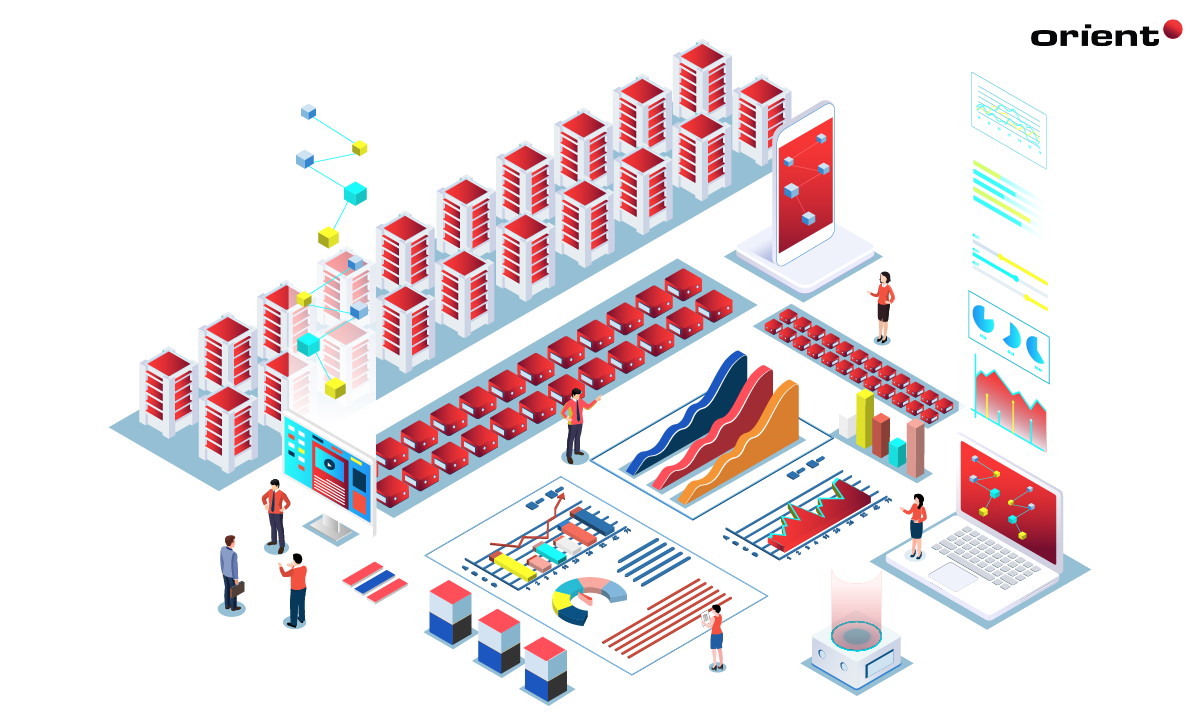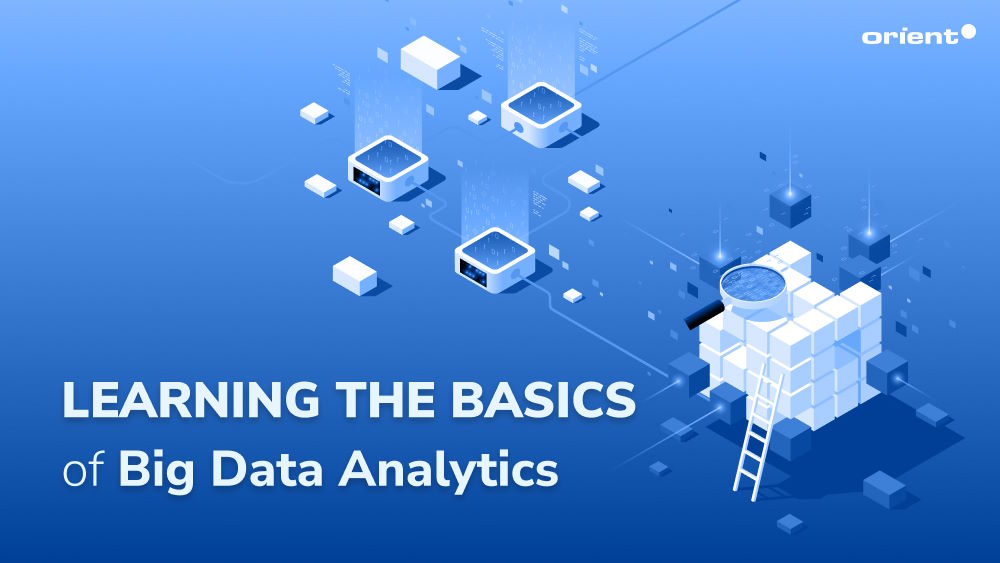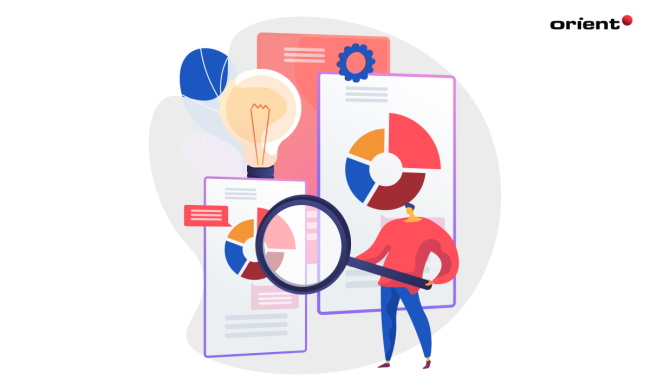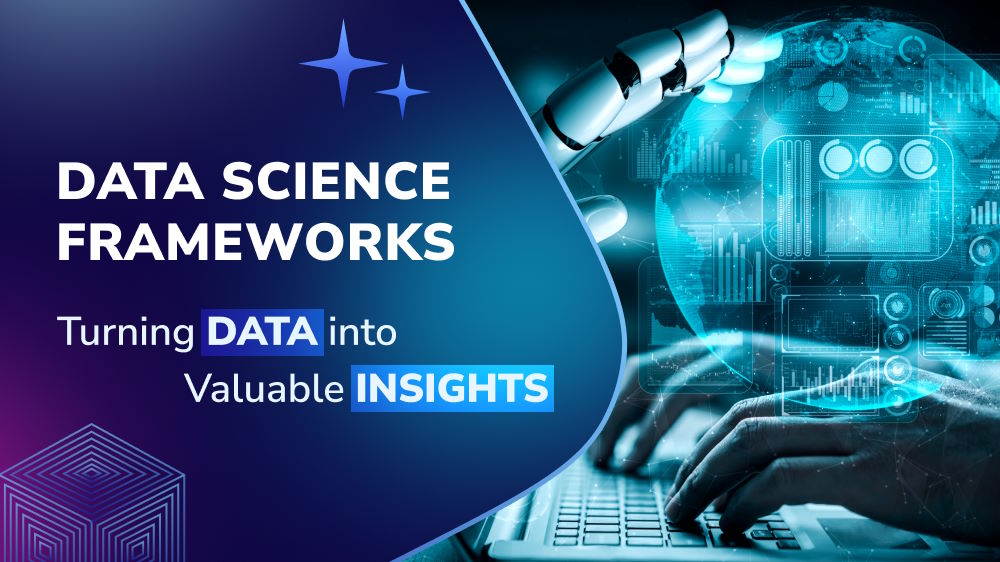
Data Science Frameworks: Turning Data into Valuable Insights
This post will cover ten different types of data science frameworks & discuss their pros and cons, so you can find one that's right for your project or team.

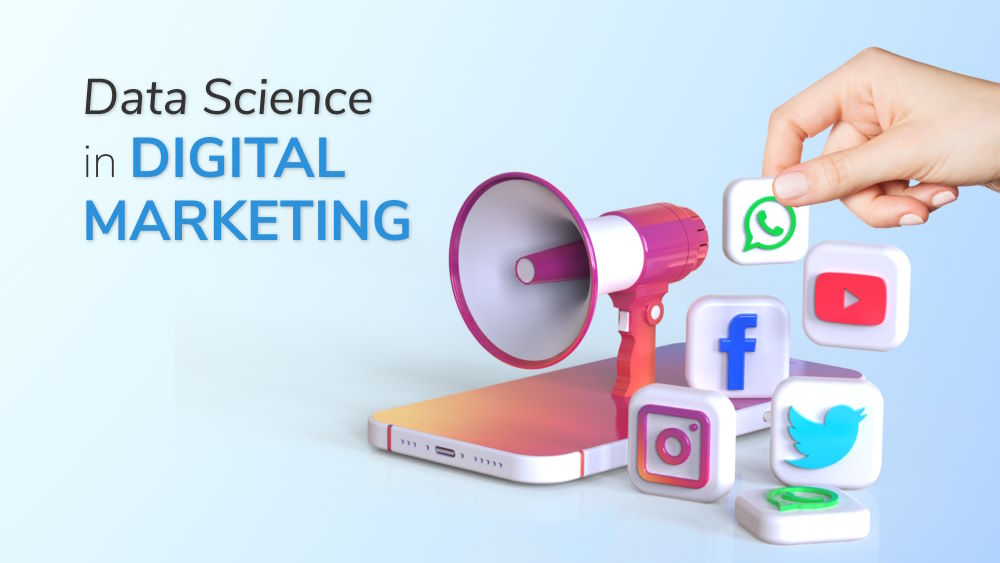
In today’s digital age, businesses are continually seeking new and innovative methods to reach and engage with their customers. This has led to the rise of digital marketing, which uses various online channels to promote products and services.
However, with so much data available, it can be challenging for digital marketers to make informed decisions about their digital marketing strategies. This is where data science methods come in. The role of data science in digital marketing cannot be overstated. Data science enables marketers to gain valuable insights into customer behavior, preferences, and trends, allowing them to make informed decisions that can significantly improve marketing performance.
In this article, let’s discover the importance of data science in digital marketing, the techniques and applications of data science in digital marketing, the challenges and limitations, and how businesses can overcome these obstacles to maximize the benefits of data science in digital marketing.
Data science is an interdisciplinary field that involves data scientists using statistical and computational techniques to analyze both structured and unstructured data to extract insights and knowledge from data. It encompasses a variety of techniques and skills, including data mining, machine learning, statistical analysis, and data visualization.
In digital marketing, data analytics is crucial for a digital marketer to make decisions about marketing strategies. With the vast amounts of data generated by digital marketing channels, businesses need to be able to analyze and interpret this data to gain insights into customer behavior, preferences, and trends. By incorporating data science techniques into data, business gains a deeper understanding of their customer’s needs and develop more effective marketing campaigns.
Data science plays an important role in digital marketing because it allows businesses to measure the effectiveness of their marketing efforts. By analyzing and tracking key performance indicators (KPIs), such as website traffic, conversion rates, and customer engagement, companies can identify areas for improvement and optimize their marketing efforts accordingly.

Data science approaches are used in digital marketing to collect, process, and analyze data to better understand customer behavior and preferences. Businesses may enhance their marketing efforts and increase return on investment (ROI) by utilizing data science methodologies.
Data collection is a critical part of digital marketing. Businesses need to collect data on customer behavior, preferences, and interactions with their brand across various digital channels. Data can be collected through various methods, such as web analytics, social media monitoring, surveys, and customer feedback. Once collected, the data must be processed and cleaned to remove any irrelevant or erroneous data and prepare it for analysis.
Data analysis involves using statistical tools and techniques to analyze data as well as identify trends and patterns. This may provide valuable insights into customer behavior and preferences, such as which products they are most likely to purchase, which marketing campaigns are most effective, and which channels they prefer to use. Data interpretation involves making sense of the data analysis results and using them to inform marketing decisions.
Predictive modeling uses statistical algorithms and machine learning techniques to make predictions about future customer behavior based on historical data. Machine learning algorithms can be used to optimize marketing efforts by recommending products, personalizing content, and identifying the most effective marketing channels. For example, a business can use predictive modeling to determine which customers are most likely to make a purchase and target them with relevant marketing messages.
Customer segmentation refers to the division of customer data into groups based on shared traits like demographics, behavior, or past purchases. The use of pertinent marketing messaging enables organizations to target certain client segments. Personalization involves tailoring marketing messages and content to individual customers based on their preferences and behavior. This can include personalized product recommendations, customized email marketing, and dynamic UI/UX design.

The use of data is transforming the way marketing is conducted, and sales are accomplished. With more people going online, the volume of data generated is enormous. This data can be utilized to personalize campaigns according to each customer’s behavior and spending patterns.
Skilled digital marketers can leverage data science techniques to enhance their campaigns in various ways.
Optimization in the budget of marketing is one of the most crucial benefits of using data science in digital marketing. Here are some ways data science can help optimize the marketing budget:
Campaign Analysis: By analyzing the data, businesses can identify which campaigns are delivering the best results and which ones are not. This can help businesses optimize their marketing budget by investing more in campaigns that are generating better results and pulling back on campaigns that are not performing well.
Channel Analysis: Data science techniques can also be used to analyze which marketing channels are most effective in terms of customer engagement, conversions, and revenue. By analyzing the data, businesses can identify which channels are generating the best results and allocate their marketing budget more efficiently, focusing on channels that are generating the most value.
A/B Testing: where two different versions of a marketing campaign or message are tested to see which one performs better. By testing different versions of a campaign, businesses can identify which version delivers the best results and allocate their marketing budget accordingly.
Predictive Analytics: Forecast the potential results of different marketing campaigns and scenarios by using predictive analytics, businesses can estimate the potential ROI of different marketing initiatives and allocate their budget accordingly.
Search Engine Optimization (SEO) is a vital aspect of social media marketing that helps businesses increase their website traffic and improve their visibility on search engines such as Google or other social network platforms. Here are some ways data science can help boost traffic via SEO:
Keyword Analysis: Data science techniques such as natural language processing algorithms can be used to analyze the keywords and phrases that are most popular use to search for products or services related to a business and optimize their website and content accordingly.
Competitor Analysis: Data science techniques can also be used to analyze the SEO strategies of competitors. By analyzing the data, businesses can identify which keywords and strategies are working for their competitors and optimize their own SEO strategy accordingly. This helps businesses gain a competitive advantage and improve their visibility on search engines.
Content Optimization: Data science techniques can be used to analyze the website content and identify areas for improvement. By analyzing the data, businesses can identify which content is generating the most traffic and engagement and optimize their website and content accordingly. This can help boost traffic to their website by providing customers with high-quality, relevant content.
Link Building: Data science techniques can also be used to analyze the backlinks to a website and identify opportunities for link building. By analyzing the data, businesses can identify which websites are linking to their competitors and optimize their own link-building strategy accordingly. This can help improve their visibility on search engines and increase traffic to their website.
Adapting marketing strategies to consumer needs is a critical benefit of using data science in digital marketing. By analyzing customer data and identifying patterns in the behavior and preferences aspect, businesses can tailor the marketing strategies to better meet the needs and preferences of their target audience. This can lead to more efficient marketing campaigns, higher customer satisfaction, and, ultimately, increased revenue.
Here are some ways data science can help businesses adapt marketing strategies to consumer needs:
Personalization: Data science techniques can also be used to personalize marketing messages and content to individual customers based on their preferences and behavior. By analyzing the data, businesses can identify which products and services each customer is most interested in and tailor their marketing messages accordingly. This may result in higher conversion rates and increased customer loyalty.
Predictive Analytics: to make predictions about future customer behavior based on historical data. By using predictive analytics, businesses gain a better understanding of customer needs and preferences and tailor their marketing strategies accordingly. This may lead to more effective marketing campaigns and higher customer satisfaction.
Real-Time Analytics: Real-time analytics businesses may evaluate which marketing campaigns and messaging are connecting with consumers by evaluating data in real time and then modify their marketing strategy as necessary. This surely can result in more efficient marketing campaigns and increased revenue.
In summary, data science is a crucial aspect of digital marketing that can help businesses gain valuable insights into customer behavior and preferences. By using techniques such as campaign analysis, keyword analysis, and customer segmentation, businesses can optimize their marketing efforts, improve their ROI, and increase their revenue.
However, not all businesses have the resources or expertise to implement data science techniques in-house. This is where outsourcing data science services can be beneficial. By investing in data science and analytics and partnering with a reputable provider such as Orient Software, businesses can gain a competitive advantage and better understand their customers’ needs and preferences. This may result in more effective marketing campaigns, higher customer satisfaction, and increased revenue. By adopting a data-driven approach, businesses can make informed decisions that drive growth and success.
This post will cover ten different types of data science frameworks & discuss their pros and cons, so you can find one that's right for your project or team.
Explore how data science in fintech is revolutionizing the way financial decisions are made and its potential to transform the industry despite the challenges.
Learn how big data analytics works, the technology powering it, and the outcomes that leading organizations are achieving today.
Learn how data analytics for cybersecurity can help organizations defend against the latest, most advanced emerging digital threats, internally and externally.
A data analytics strategy is the foundation for all data activities. Learn how to devise one that can lead to meaningful and impactful business transformation.

